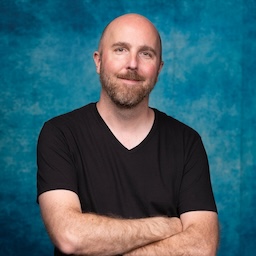
 John Moravec
John MoravecSix things I learned at the Pioneers Festival
Last week, I attended the two-day Pioneers Festival in Vienna. Housed in the Hofburg imperial palace (an “impossible to book” venue), the event was a mixture between discussions, speeches and interactive workshops with topics concerning entrepreneurship, innovation, and technology. True to its name, it also embraced a “festival”-like atmosphere with free-flowing beer and Red Bull, party marathons in the evenings, and a monster-sized Halloween after party on the imperial grounds — all designed to encourage conversation, learning, and connection-building among the 2,500 participants at the event. I’d love to post a review, but it would echo just about everything The Kernel had to say about the event (although I tried Airbnb instead of Hotel Sacher, and probably had a much nicer time because of it).
Over the two days, I learned a lot. But six key ideas stand out:
- “The more you give away, the more you get back” — this was the lesson shared by Matt Mullenweg. He should know. His open source project WordPress now powers 19% of global websites. The beauty of open source, he argues, is that by feeding into a broader system, they are able to enable serendipity, and generate new outputs that are bigger than any of us.
- It is becoming increasingly hard to find entrepreneurs that have finished college. Walking through the halls of Hofburg, meeting new startups and VCs, it became clear (through my non-scientific observation) that not many people at the event had completed a college program. Some focused on pursuing their dreams in lieu of school, and others dropped out before finishing. A couple others were involved in startup schools, like the one at Aalto University. Of the people I talked with who had completed a college education, I was astonished that so many of them had gone on to complete a PhD. Why is there such a gap between the PhDs in the room and the non-degree-completers? And, as our societies rest our hopes and dreams on startups and startup culture, is a college education important anymore?
- “Most edutech startups suck!” Inês Silva (participating remotely from Portugal) shared this article by Harvard’s Reynol Junco for VentureBeat, which I think is spot on. The article points out that despite the exponential grown of edutech startups in the market space, very few of them are connected with research or the realities of how we learn. Even worse, because many of these startups are being lead by people who dropped out of school (or hated it), they are focused on fixing particular elements of it. Almost nobody is working on completely reinventing the system. As a result, we are (mis)using new technologies to teach the same old crap the same old way. That sucks.
- Timing is everything. This statement might seem obvious, but too often in the entrepreneurial and academic worlds we take a gung-ho approach to releasing ideas before the world is ready for them. Adam Cheyer (founder of Siri) stated early at the festival that, “the best way to predict the future is to invent it …but timing is everything.” Indeed, everybody at the festival came with great ideas. Some of us were ahead of our time, and a few others are a little bit late. Finding the sweet spot on when to release a product or idea can be tough. But, for those of us that are focused on building the future, it is important to keep nurturing it, keep developing our ideas, and work hard to make sure they are a success when it is time to release them.
- Megacorporations are clueless when it comes to connecting with startups. There was nothing more painful than watching Konica Minolta‘s Ken Osuga give a presentation on how his company (one of the festival’s key sponsors) is just like the startups in the room: Founded 140 years ago. In Tokyo. (I’m not kidding, that’s what he said … several times.) Nearly as painful was watching Microsoft‘s Ruud de Jonge show the crowd how cool he was for carrying around a Surface — and criticized the rows-upon-rows of people working with iPads and MacBooks for gravitating toward things that are “fruity.” Really. He thought people in the room care about what Microsoft thinks about them. Indeed, there is a growing institutional generation gap between large corporations that want to sell their products and smaller, younger, hyper-individualized firms that wonder why they need them at all. That said, one of the elements that I loved about the Pioneers Festival was that it was focused more on building conversations among attendees and the intangibles that are created in a festival-like environment. Whereas companies like Konica Minolta and Microsoft floundered, the founders in the room created real value among themselves.
- The world has no more room for “intellectual masturbation.” In his session on business design, Alexander Osterwalder declared that, “writing a business plan is intellectual masturbation!” Indeed, the old school thinking (and still taught in business schools) of careful business planning is becoming obsolete. Businesses need to be prepared to pivot and transform faster. This requires new strategic thinking for startups. Likewise, academia needs to step away from intellectual self-gratification. Lacking interconnected purpose, contextual applicability, and responsibility for creating outputs that are meaningful can make academic conferences resemble an intellectual exercise in self-love-making. In the age of connection-building and collaborations through social media, can academic societies and conferences find a purposive role and also pivot their strategies when necessary?
